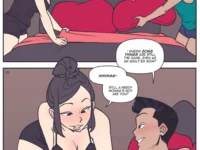Death note episode 1 with eng sub







Find Death Note Complete TV EPISODE 1-37 (4 Disc) at Amazon.com Movies & TV, home of thousands of titles on DVD and Blu-ray.
Light arrives home from school and gives his mother the results of the National Practice Exam. He waves off any offers a reward for placing first and goes to his room to be alone. Opening up the Death Note, several pages of the notebook are filled with names. Ryuk appears, and Light screams and falls out of his chair in surprise. Ryuk introduces himself as the Shinigami who dropped the notebook. Collecting himself, Light informs Ryuk that he has been waiting for him. Ryuk is impressed with the number of times Light has used the Death Note in just 5 days and supplies Light with more information about the notebook.
Watch Death Note episode 13 online with subs free
What is the plotline of Death Note? How many episodes does Death Note have? Where can Death Note be streamed? If you are an
This article has been written just for you, you beautiful souls. We shall satiate the curiosity of every otaku that wants to watch one of the most, if not the most, legendary anime of all time, Death Note. We have done thorough research to provide you with every bit of information that you may need for a smooth streaming experience. Watch Death Note first. Thank us later.
Have you ever felt like the world would be a better place if certain people weren’t around? Such grim daydreams might occur when watching the dismal daily news, but on one fateful day, Light Yagami finds that these daydreams can become reality. By pure happenstance, he comes across a black notebook entitled "Death Note", whose text within states that whoever’s name is written on its pages will die. With the aid of the death god Ryuk, Light takes it upon himself to rid the world of its corruption, ushering in a new era of purity one death at a time. But as Ryuk foretells, Light’s actions will not go unchallenged…
StoryOrdinarily, I make a point to avoid series plagued by fanboyism, as they generally suffer from pitiful characterization, flimsy storylines, and sub-par aesthetics. Yet, Death Note carried some strange allure and managed to pique my interest, so I decided to give it a shot. I would not be disappointed. It's one of those gems that graces the anime world only every so often and certainly deserves a considerable amount of respect. At its core, Death Note is an anime that captivates you with a story fashioned around logic, wit, trust, and betrayal. Filled with deep characters and weaved with intensity, it grips you from start to finish with amazing vice. It traces the story of Yagami Light, a young college student who has become disillusioned with the pervasiveness of crime and corruption spread throughout the world. Purely by accident, he stumbles upon a book called a Death Note, which allows its author to kill any person of his or her choosing by merely writing their name inside, given that they know the person's name and face. Though at first skeptical, Light decides to use its powers to cleanse the world of evil, and thus begins his quest for justice.What immediately follows, however, is a conglomerate struggle of ethics and morality. Death Note presents a surprisingly detailed scenario in which the definition of absolute justice is blurred and the true nature of morality is put into question. Unlike other pseudo-intellectual anime that attempt to provide naïve approaches to such tough subjects, though, it does not step lightly around any of its subject matter. The script writers do a fantastic job at presenting the storyline in dramatic fashion without drowning out its substance in philosophy. There are a number of such elements that the series touches upon, but each and every one is seamlessly streamlined into the anime.Due to the nature of Death Note's story, however, it's incredibly difficult to present an accurate, detailed reflection of the plot without giving important details away. The drama is presented in a very cumulative fashion, with each individual episode building upon the intricacies and complexities of the last. For a series built so strongly around logic, this is definitely a strength rather than a weakness. You'll find yourself gripped from the first minute until the last, carried on by numerous twists and turns that keep the story both fresh and intriguing with each installment.AnimationDeath Note takes the liberty of incorporating some of the best shading effects to date. Grasping emotions and moods with unrivaled precision, detail pervades every inch of every scene. One of Death Note's greatest assets is its ability to immerse the viewer into the anime itself, and the animation here definitely plays a major role in making that happen. Camera angles are taken to accentuate facial expressions, shadows fashion character designs, and the scenery defines moods. Death Note's aesthetics reflect the essence of the storyline itself, and are awash with metaphorical splendor that can be appreciated on a number of different levels.SoundOddly enough, two of Death Note's lowest points are the average quality opening and ending themes. Though they certainly capture the mood of the series well enough, they aren't too impressive as individual tracks. Aside from these songs, however, the vast majority of the insert music is above par; save for a very few select pieces, it's surprisingly well orchestrated. The voice acting is where Death Note's sound score really shines, though, especially with Light — I felt his actor captured his personality and expressions with pinpoint accuracy. By in large, this same standard of quality assumes itself in all but one character, so be prepared for a treat in this category.CharactersAgain, commenting on the characters is hard because Death Note continually builds upon itself the story progresses. Though I didn't particularly care for some of the development of a few side characters, every person to appear throughout the series has a distinct purpose. The number of extraneous characters is kept to a virtual minimum, and those who serve little purpose only appear for as long as they are needed; you certainly won't find a plethora of useless fluff here. The writers went through the series with a fine-tooth comb to make sure that each fills his or her respective role with the utmost of precision, making sure only to assimilate those who are necessary for the dramatic elements of the plot.OverallTo conclude, I'm incredibly impressed with Death Note. While, like any other anime, it does have its flaws, as a whole they are relatively minor. There are a few ups on downs throughout the course of the thirty-seven episodes, but the vast majority of time is spent very wisely. To its fortune, the series is constructed in such a way that it has a nearly universal sense of appeal, and as such should not be passed up. Most definitely a once-in-a-lifetime experience, so make sure to check it out if you have not done so already.
Enter the mind of a sociopath, Light Yagami. A remarkable teenager, he’s devilishly handsome, twice junior tennis champion, and ranks first in the national exams. In other ways, though, he’s quite the simpleton: a textbook megalomaniac with delusions of grandeur. Oh, and he’s just been handed the power to kill individuals simply by writing their names in a notebook.Death Note is a cat-and-mouse suspense-thriller with a paranormal twist and hints of schizophrenia in its concept design. It requires that viewers suspend their disbelief and common sense in order to fall in love with it. For example, we must believe that there are teenagers more intelligent than the world’s best detectives; that death gods exist and give humans said notebooks just for fun; and that the man assigned to solve the mystery of the death gods, and has seasoned police officers drooling after his knowledge, is an emo. Rather than waste time excusing itself, the show prefers to sidestep these chasms of logic and run straight for the action – the onus is thus on the viewer to choose to follow.What sold me on this escapist journey was not the cliffhangers or the sumptuous animation, but Mamoru Miyano’s incredible incarnation as Light. He evokes just the right balance of charisma and pure evil. Take this line for instance: ‘Then, behind the fact that deserving criminals are dying of heart attacks, I’ll gradually start killing off people who cause problems for innocent people, through illness and accidental death… Then I’ll have created a world filled with those I’ve judged to be kind and hardworking.’ In the universe of crackpots, this speech is nothing remarkable. However, when Light says it, I start to believe that taking the world on this collision course to hell would be the most invigorating accident I’ve had since Jackass. His performance is infectiously gleeful, as though he really had started to go mad in the recording booth and the tape just happened to catch him talking. When Light cackled, I cackled too; when he became angry, I froze. Even if Light is the bad guy, Miyano makes him so convincing, it’s difficult not to root for him.Light kills convicted criminals under the pseudonym ‘Kira’ (a reworking of the word ‘killer’) with the aim of creating a pure world. Let’s face it, most viewers will cheer the death of Shibutaku, for example, who attempts to rape a girl one fateful evening. The show even puts a mirror to this instinctive moral hipocrisy; as police trawl the city to bring the murderous Kira to justice, grateful citizens dedicate websites and television shows to him, calling him a hero of the people. Light himself is not particularly meticulous about his moral code – very soon, they’re dropping left, right, and centre just for getting in his way. However, the question still remains: is his moral reasoning kinked or is he the only one thinking clearly in a world where murderers and rapists retain the same rights as law-abiding citizens?On the other side of this psychological war, the genius detective L proves to be a strange one, too – although not to the same level of fascination as Light. Judging him by his scraggly black hair, pale skin, and ferral posture is probably more favourable, since underneath it all he’s rather hollow. He reveals nothing of himself except that he’s a friendless eccentric with a child-like vulnerability the fangirls will like. Mainly, for his part in the chase after Kira, he talks about probabilities in exact percentages. ‘Well, when I say "suspect", it’s only about one percent,’ he says with the deadpan certainty of a supercomputer. I just heard mathematicians everywhere wince in unison, but I’m sure his teenage viewers appreciate the general gist. In any case, he is necessary simply for the fact that, without his cunning interventions on the side of justice, Light’s plan for world domination would be too easy. Moreover, despite his relative shallowness, he does end up delivering the best episode of the entire series.I could not close this discussion without mentioning Death Note’s excellent grasp of suspense. It churns out in droves the kinds of edgy cliffhangers other shows could dream up only with the aid of drugs. While it handles these twists with the same regard for truth and logic as, say, Alice in Wonderland, it never forgets to do so in style. Viewers can thank the wizards at Madhouse for the outstandingly rich concept design, which thrums with hallucinatory overtones and brings to life some stunning set-pieces. I lived for those moments when Light delivered one of his crazed monologues, his eyes glowing red while behind him loomed shadows of a vast, empty, hellish landscape. Indeed, Death Note may not be cerebral, and its main characters are pure fantasies, but it’s skilful and witty and packed with the kind of brazen spectacle an audience damn well deserves.
Death Note Rewrite 1: Visions of a God
Death Note Rewrite 2: L's Successors
Death Note: Another Note – The Los Angeles BB Murder Cases (Light Novel)





























